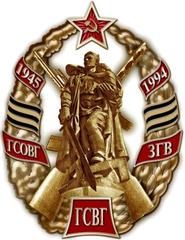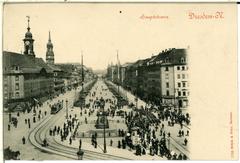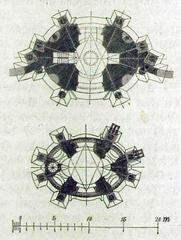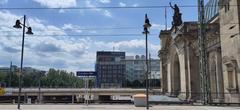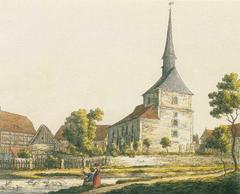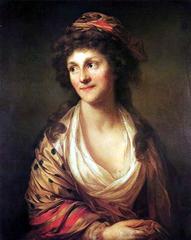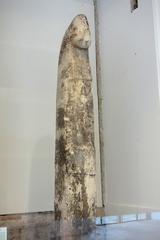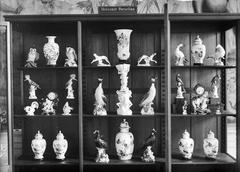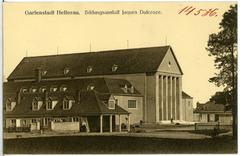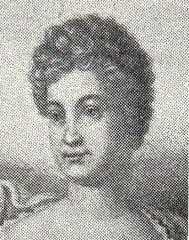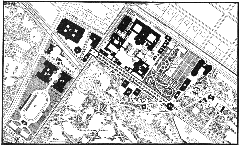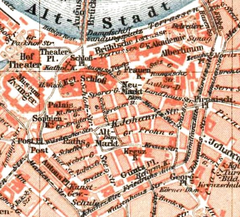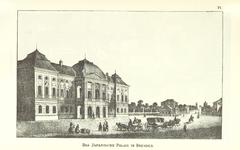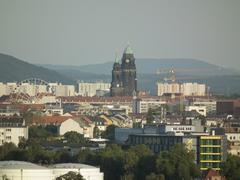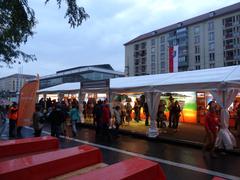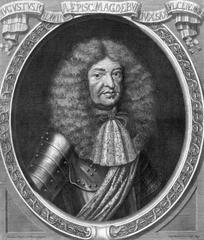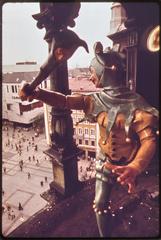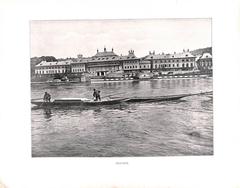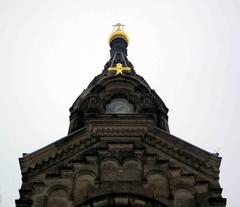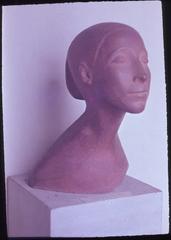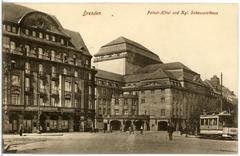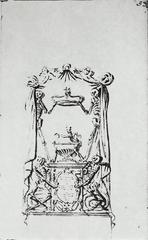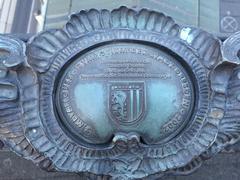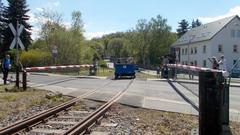Erich Kästner Museum Dresden: Visiting Hours, Tickets, and In-Depth Guide
Date: 04/07/2025
Introduction
The Erich Kästner Museum in Dresden is a landmark for literature lovers and cultural explorers. Located in the historic Villa Augustin, the museum provides an immersive journey into the life and works of Erich Kästner—renowned author, poet, and journalist who shaped 20th-century German literature and children’s fiction. This guide delivers comprehensive, up-to-date information about the museum’s unique micromuseum® concept, visiting hours, ticketing, accessibility, educational initiatives, and its integral role in Dresden’s cultural heritage.
Erich Kästner: Dresden Roots and Literary Legacy
Born in Dresden in 1899, Erich Kästner’s early childhood in the city left a deep imprint on his later works. His upbringing on Königsbrücker Straße, within a modest family, is reflected in autobiographical works such as Als ich ein kleiner Junge war (“When I Was a Little Boy”) (visit-dresden-elbland.de; dresden.de). His education at local schools and subsequent studies in Leipzig and Berlin fueled his sharp wit and empathetic storytelling.
Kästner’s literary output was prolific and influential. His most famous novel, Emil und die Detektive (“Emil and the Detectives”), set a new benchmark for children’s literature and was translated into over 70 languages (einfachraus.eu). Other classics such as Pünktchen und Anton, Das doppelte Lottchen (“The Parent Trap”), and Das fliegende Klassenzimmer continue to shape global literary culture and inspire adaptations in film and theater.
The Erich Kästner Museum: Micromuseum® Innovation
Concept and Design
Housed in Villa Augustin—once home to Kästner’s uncle—the museum embodies the micromuseum® concept, developed by architect Ruairí O’Brien in 1999. The design transforms a single room into an interactive “walk-in treasure chest,” using 13 modular cabinets filled with original artifacts, manuscripts, multimedia displays, and personal memorabilia (ruairiobrien-architekten.de; kaestnerhaus-literatur.de). This format invites tactile exploration, making the museum both accessible and engaging for all ages.
Exhibits and Collections
- Kästner’s Childhood and Dresden: Artifacts from his early life, items from his autobiographical writings.
- Literary Milestones: Rare first editions, handwritten manuscripts, and correspondence.
- Social and Political Engagement: Documents and press clippings detailing his resistance to Nazi censorship, including records of the 1933 and 1965 book burnings (einfachraus.eu).
- Media, Film, and Journalism: Audio, film, and radio material showcasing Kästner’s media involvement.
The museum’s flexible, space-efficient layout (approx. 30 m²) encourages visitors to open drawers, access multimedia content, and discover history hands-on (city-tourist.de).
Visiting Information
Hours and Tickets
-
Opening Hours:
- Sunday, Monday, Thursday, Friday: 10:00 – 17:00
- Wednesday: 12:30 – 17:00 (morning reserved for groups)
- Closed: Tuesday and Saturday
(kaestnerhaus-literatur.de)
-
Admission:
- Adults: €6
- Reduced (students, seniors): available
- Children under 6: Free
- Family tickets and group rates offered
(visit-dresden-elbland.de)
-
Ticketing:
- Tickets are available at the museum entrance.
- For updates on online ticketing, consult the official website.
Location and Getting There
- Address: Villa Augustin, Antonstraße 1, 01097 Dresden
- Public Transport: Tram lines 3, 6, 7, 8, and 11 to “Albertplatz – Erich Kästner Museum”; short walk from Dresden Neustadt S-Bahn station (visit-dresden-elbland.de).
Accessibility
- Wheelchair accessible with ramps and elevators.
- Bilingual (German/English) resources throughout the museum.
- Virtual museum and audioguide app for remote or international visitors (kaestnerhaus-literatur.de).
Interactive and Digital Offerings
Virtual Museum
Experience the museum online through a 3D WebGL-powered platform that allows exploration of digitalized manuscripts, first editions, and thematic modules (kaestnerhaus-literatur.de).
Audioguide and Podcasts
A free bilingual audioguide app is available, providing narrated tours and background stories. The museum’s podcast collaboration, “Magisches Mikro,” brings Kästner’s world to families and children (kaestnerhaus-literatur.de).
Educational Programs and Community Engagement
Workshops and Youth Programs
- Workshops: Creative writing, comic art, and gamified reading programs such as “Kästner, fertig, los! Leseförderung mit Actionbound.”
- Annual “Parole Emil!” Rally: City-wide detective game for schoolchildren inspired by Emil und die Detektive (kaestnerhaus-literatur.de).
- Guided Thematic Tours: Explore Neustadt’s locations linked to Kästner’s life with expert guides (igeltour-dresden.de).
Literary Events
- Public Readings: City-wide reading projects, such as “KÄSTNER NON STOP.”
- Dialog Nights and Literary Walks: Engage with authors and the local literary community (dresden-kulturstadt.de).
Digital Engagement
- Virtual Museum and Social Media: Connect with fans and experts worldwide through digital platforms and campaigns like “ALL ABOUT K@STNER.”
- Audioguide Feedback: Visitors can participate in feedback campaigns for a chance to win Kästner-themed prizes.
Visitor Services
- Museum Shop and Café: Find Kästner-themed books and souvenirs, and enjoy refreshments in the reading café (kaestnerhaus-literatur.de).
- Nearby Attractions: Combine your visit with other Dresden sites such as the Residenzschloss, Zwinger Palace, Semperoper, Frauenkirche, Golden Rider statue, and the historic Neustadt district.
Frequently Asked Questions (FAQ)
Q: What are the Erich Kästner Museum’s opening hours?
A: Sunday, Monday, Thursday, Friday 10:00–17:00; Wednesday 12:30–17:00; closed Tuesday and Saturday.
Q: How much is admission?
A: Adults €6; children under 6 free; reduced and family rates available.
Q: Is the museum wheelchair accessible?
A: Yes, and digital resources are also available for those unable to visit in person.
Q: Are guided tours and special programs offered?
A: Yes, guided tours, literary workshops, and annual events are available—see the website for details.
Q: How do I get there by public transport?
A: Tram lines 3, 6, 7, 8, and 11 to “Albertplatz – Erich Kästner Museum”; a short walk from Dresden Neustadt S-Bahn station.
Visuals and Media Recommendations
- Use high-resolution images of the museum’s interior and exterior, including the interactive modular cabinets and Villa Augustin’s historic façade.
- Alt text for web images: “Erich Kästner Museum Dresden exhibits”, “Interactive literary museum Dresden”, “Villa Augustin Dresden exterior”.
- Link to the virtual 3D museum tour.
- Embed a map of the museum’s location and proximity to Dresden’s cultural attractions.
Conclusion and Visitor Recommendations
The Erich Kästner Museum stands as a unique blend of heritage preservation, educational innovation, and interactive exploration. Its micromuseum® design, rich collection, accessible programming, and dynamic community engagement make it a cultural highlight for visitors of all backgrounds. Whether you’re discovering Kästner for the first time or deepening your appreciation of his work, the museum offers a rewarding and memorable Dresden experience.
Plan your visit:
- Check current opening hours and ticketing on the official website.
- Download the free bilingual audioguide app.
- Explore the virtual museum and follow the museum on social media for event updates.
For further exploration, visit other Dresden attractions, participate in literary walks, and engage with the city’s vibrant cultural scene.
Sources and Further Reading
- visit-dresden-elbland.de
- ruairiobrien-architekten.de
- kaestnerhaus-literatur.de
- dresden-kulturstadt.de
- city-tourist.de
- dresden.de
- en.wikipedia.org
- einfachraus.eu
- igeltour-dresden.de
